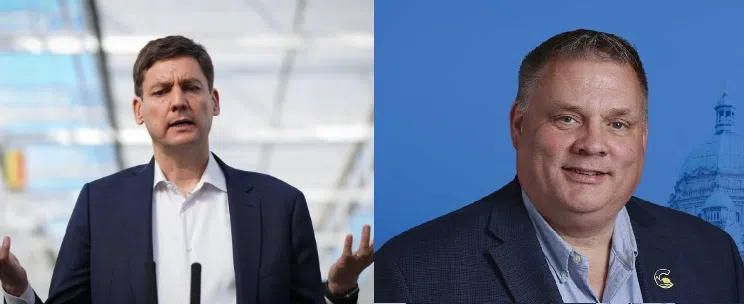
Premier David Eby’s third cabinet shuffle since taking office is being framed by his government as a strategic realignment to respond to economic threats, escalating trade tensions, and unmet campaign promises. But critics, including members of the Official Opposition BC Conservative Caucus, say the changes are superficial and fail to address the province’s growing crises in health care, affordability, and public safety.
Announced Thursday at Government House in Victoria, the shuffle moves two veteran ministers out of cabinet and brings two newcomers in. Several portfolios were restructured in a move the Premier says is designed to “meet the moment” for British Columbians. “The world has changed since the election and since the swearing-in of our first cabinet,” Eby said during the announcement. “We’re matching our team’s skills with today’s challenges—growing the economy, protecting jobs, and strengthening services.”
Among the key changes:
-
Ravi Kahlon returns to the Jobs and Economic Growth portfolio.
-
Nina Krieger, a newly elected MLA from Victoria-Swan Lake, becomes Minister of Public Safety and Solicitor General, replacing Garry Begg.
-
Jessie Sunner becomes Minister of Post-Secondary Education and Future Skills.
-
Christine Boyle moves from Indigenous Relations to Housing and Municipal Affairs, replacing Kahlon.
-
Spencer Chandra Herbert steps into Indigenous Relations and Reconciliation.
-
Rick Glumac shifts to become Minister of State for AI and New Technologies, reflecting a new provincial focus on emerging sectors.
The shuffle comes just nine months after the NDP narrowly secured a third term in office. The new cabinet has a strong regional and demographic balance, with 19 women and members from the Lower Mainland, Vancouver Island, the North, and the Interior. According to the Premier’s Office, the changes are in part a response to the threat of tariffs from U.S. President Donald Trump, who recently proposed a 35% levy on non-CUSMA-compliant Canadian goods.
But the move is being dismissed by the BC Conservatives as a political distraction rather than meaningful reform. “It took us totally by surprise,” said Peter Milobar, BC Conservative Finance Critic and MLA for Kamloops Centre. “What’s more surprising is how minor it actually was, given the complete disaster we’re seeing in health care, crime, and safety.”
Milobar said the shuffle fails to acknowledge the gravity of challenges facing British Columbians. He criticized the Premier for recycling ministers rather than replacing underperformers and questioned the logic of reassigning portfolios based on tariff threats when those issues had already been under ministerial review. “Minister Kahlon chaired the tariff committee for months. If they haven’t delivered results by now, moving him back to jobs doesn’t change that,” Milobar said. “This isn’t a reset—it’s a channel-changer, an attempt to shift focus without solving problems.”
Milobar pointed to a string of controversies and policy failures, including the defunding of a child’s treatment for Batten disease, ER closures, and public backlash over the province awarding a B.C. Ferries shipbuilding contract to a Chinese state-owned company. “There’s no recognition of the issues in health care,” Milobar said. “We’ve got GoFundMe healthcare, unaffordable child care, and an affordability crisis that just keeps deepening. This government is not responding to what British Columbians are actually experiencing.”
BC Conservative Leader John Rustad issued a similarly scathing response, accusing the Premier of deflecting from his government’s shortcomings. “British Columbians don’t need a new list of job titles—they need this government to start doing the job it was elected to do,” Rustad said.
Though the NDP says the shuffle aligns talent with emerging challenges, Milobar sees it as a premature acknowledgement that the Premier’s original cabinet choices missed the mark. “These were his hand-picked ministers based on their supposed strengths. And now, not even a year in, he’s reassigning them? That’s an admission something’s gone wrong—without saying so outright.”
With the legislature on summer break, the focus now shifts to the updated mandate letters and how the new cabinet will approach looming issues such as B.C.’s response to U.S. trade actions, slowing job growth, and a strained healthcare system. Whether this shuffle leads to improved governance—or further political vulnerability—remains to be seen.















